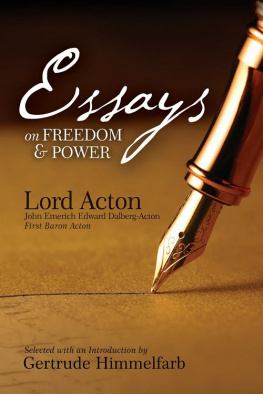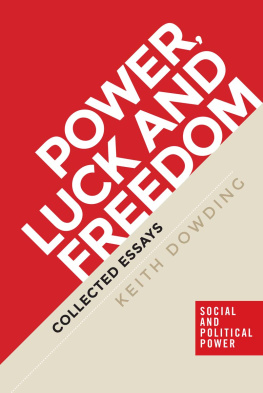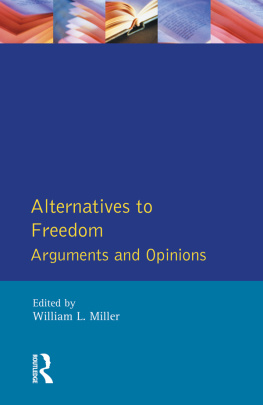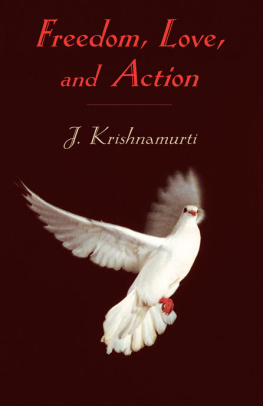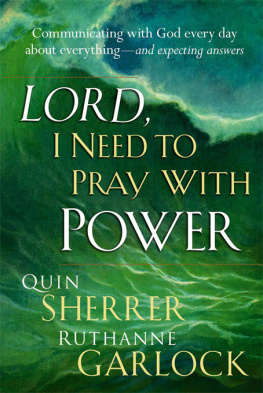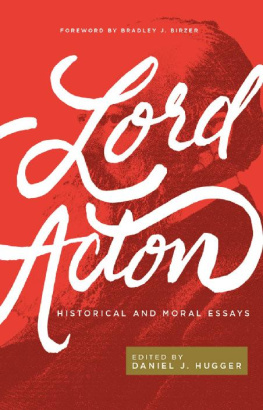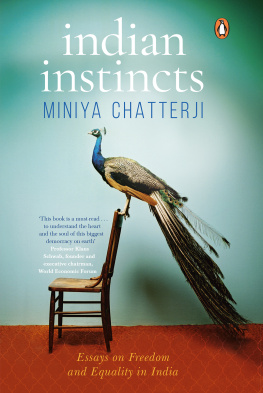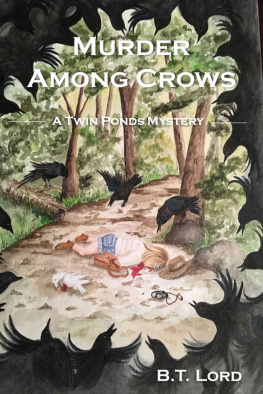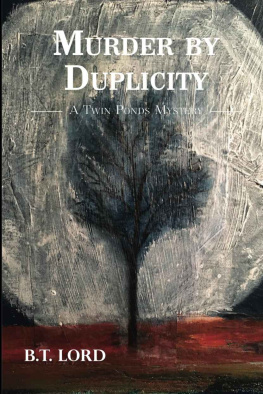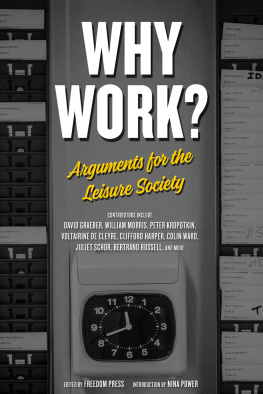Lord Action - Essays on Freedom and Power
Here you can read online Lord Action - Essays on Freedom and Power full text of the book (entire story) in english for free. Download pdf and epub, get meaning, cover and reviews about this ebook. year: 1949, publisher: Mises Institute, genre: Religion. Description of the work, (preface) as well as reviews are available. Best literature library LitArk.com created for fans of good reading and offers a wide selection of genres:
Romance novel
Science fiction
Adventure
Detective
Science
History
Home and family
Prose
Art
Politics
Computer
Non-fiction
Religion
Business
Children
Humor
Choose a favorite category and find really read worthwhile books. Enjoy immersion in the world of imagination, feel the emotions of the characters or learn something new for yourself, make an fascinating discovery.
- Book:Essays on Freedom and Power
- Author:
- Publisher:Mises Institute
- Genre:
- Year:1949
- Rating:4 / 5
- Favourites:Add to favourites
- Your mark:
- 80
- 1
- 2
- 3
- 4
- 5
Essays on Freedom and Power: summary, description and annotation
We offer to read an annotation, description, summary or preface (depends on what the author of the book "Essays on Freedom and Power" wrote himself). If you haven't found the necessary information about the book — write in the comments, we will try to find it.
Essays on Freedom and Power — read online for free the complete book (whole text) full work
Below is the text of the book, divided by pages. System saving the place of the last page read, allows you to conveniently read the book "Essays on Freedom and Power" online for free, without having to search again every time where you left off. Put a bookmark, and you can go to the page where you finished reading at any time.
Font size:
Interval:
Bookmark:
By
John Emerich Edward Dalberg-Acton
FIRST BARON ACTON
Selected, and with an introduction by
Gertrude Himmelfarb
Preface by
Herman Finer
1949
Trade Edition: THE BEACON PRESS, Boston, Mass.
Text and Library Edition: THE FREE PRESS, Glencoe, Ill.
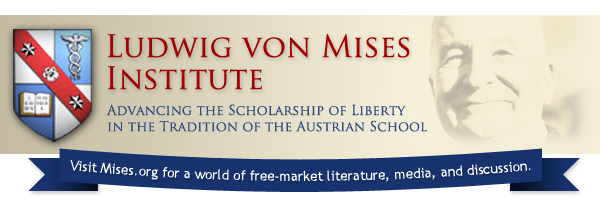
Copyright, 1948
THE FREE PRESS
Second printing, November, 1949
PRINTED IN U.S.A.
Grateful acknowledgment is made to the Macmillan Company for permission to reprint material from the following books: The History of Freedom and Other Essays, Historical Essays and Studies, Lectures on the French Revolution, Lectures on Modern History and Letters of Lord Acton to Mary Gladstone.
Those who read Acton today will treble Lord Morley's praise of him and affirm that they would undertake to find on every page of Acton at the very least one pregnant, pithy, luminous, suggestive saying. For Acton's is the splendid voice of charity and informed wisdom heard from above the merciless and warring extremists of a sorely perplexed time. His reputation as a master historian, elevated as a mountain of constancy above the flat wastelands, attests that the greatness of a soul is measurable by the duration the undefeatable vitality of its moral force.
To what is the perennial appeal of Acton due? Above all, to Acton's moral integrity. Firm, steady, dispassionate, self-controlled, unbelievably erudite, he does not yield his ethical principles one iota. In devotion to the supremacy of the Sermon on the Mount, he said no surrender to iniquity. His studies command a persistent, ever-recurring esteem for his own precious, sacrificial devotion to truth. Though men may be errant, they are brought back again to Acton's vindication of the supreme human truths as they shine forth from the course of history: religion, veracity, justice, the hatred of lies and cruelty.
Acton was no mystic, though like all men his mind reposed upon a faith. He was an intellectual who wrote of men's gravest concerns, earnestly and scrupulously, with brilliant illumination, following the discoverable evidence. He was a powerful, indefatigable explorer of human nature and human events, rich in ideas, deep in thought, highly practiced in reflection. He believed in the capacity and the right of man's intellect to investigate and to discriminate between good and evil, not that man's mind must suffer defeat. For Acton, historical exploration was the true demonstration and sovereign guidance of private and public conscience.
I compute that he read some twenty thousand books. What appears here is a representative portion of what he wrote or spoke on the path to what he never succeeded in writing, a History of Liberty. Greater integrity hath no man than this, that he abandoneth his unwritten book when intellect hath declared the materials imperfect.
In time of affliction it becomes compulsive in mankind to rake over the ashes to identify at what point virtue, character, fate, knowledge or environment the course might have been differently ordered. Acton is an oracle today because he is a universal historian, that is to say, his range is immense in time and terrestrial area. He is sophisticated enough to include the making of history, as he said, by events on the political backstairs. Acton's history is a steady majestic voyage of the mind and soul in a vast and comprehensible path and design, not merely mundane, concrete. It has spiritual meaning: gushes lessons on the nature, capacities, and destiny of man, the relationship of individual conscience to the movement of society and of the rights of man to the power of government. It promises to enable us to make political science and political judgments effective. The standing attraction of this kind of history is its assured offer of something like the full formula of human nature in politics.
If the design were something horrible, Acton's history might still be left in its little black boxes used by the author as his storehouse of notes. Acton's history vindicates human freedom, which he sets above any other human interest. Liberty, says Acton, is not a means to a higher political end. It is itself the highest political end. Now everybody is a devotee of freedom for what particular good is another matter. And whether one can bestow it on all, without denying a proportion of it to each, is also another matter, as we shall see. But the prayer to liberty must find eager admirers in an age chastised by total war, diabolically ingenious torture, thorny economic and social perplexities; in an age in which a developing democratic conscience is at odds with almighty economic entrepreneurs and hereditary vested interests, of conscious extensive state economic planning, and of intransigent, despotic and murderous politicians of extreme left and right, who have contemptuously discarded charity and banished truth, virtue and mercy.
Arnold J. Toynbee's A Study of History is not formally a history of liberty; but, in so far as it is a significant history of civilizations it is bound to be a valuable history of liberty. It is just possible that Acton did not so succeed because he became prophetic enough to realize that success meant failure. Toynbee's success (which he did not purpose) consists in almost completely revealing the gaps in a full and final account of man in society; and not only this, but the dreadful inevitability of gaps, the fatality of the necessary escape of facts and understanding which the historian tries to domesticate. The pattern the historian discovers is seen to be an approximation, after all. Acton must have looked back on the essays of his earlier days for example, the two on the civil war in the United States and surely have learned that if man can err on a contemporary event of world magnitude, how hesitant must a man of conscience (which Acton was above all else) be about events of a remoter past?
People seek a broad sweeping historical induction which shall be the truth, the whole truth, and nothing but the truth wide in its compass, profound in its insight, and utterly convincing in its finish and definition but such revelation cannot be won once and for all, at any one time by a single man, or a sect, school, church or nation, or even by an international band of scholars. Acton deplores the imperfection of historical materials. His efforts furnish a grand practical dual lesson in history: what we must add to historical induction to reach valid social conclusions, and with what a qualifying spirit the historians conclusions must be read if their account of human nature is to be helpful to those who are governed and those who govern. How foolish it would be not to listen to so earnest, learned and wise a man, speaking on the grandest of human concerns in grave and noble accents, simply because it is given to no man to be capable of uttering any more than a warning!
However scrupulous Acton was to assimilate and write all his facts, as Ranke desired letting them speak for themselves without personal interference his conception of the role of history is provocative. His rule was:
The inflexible integrity of the moral code is, to me, the secret of the authority, the dignity, the utility of History. If we may debase the currency for the sake of genius, or success, or rank, or reputation, we may debase it for the sake of a man's influence, of his religion, of his disgrace. Then History ceases to be a science, an arbiter of controversy, a guide of the wanderer, the upholder of that moral standard which the powers of the earth, and religion itself, tend constantly to depress.
Font size:
Interval:
Bookmark:
Similar books «Essays on Freedom and Power»
Look at similar books to Essays on Freedom and Power. We have selected literature similar in name and meaning in the hope of providing readers with more options to find new, interesting, not yet read works.
Discussion, reviews of the book Essays on Freedom and Power and just readers' own opinions. Leave your comments, write what you think about the work, its meaning or the main characters. Specify what exactly you liked and what you didn't like, and why you think so.

